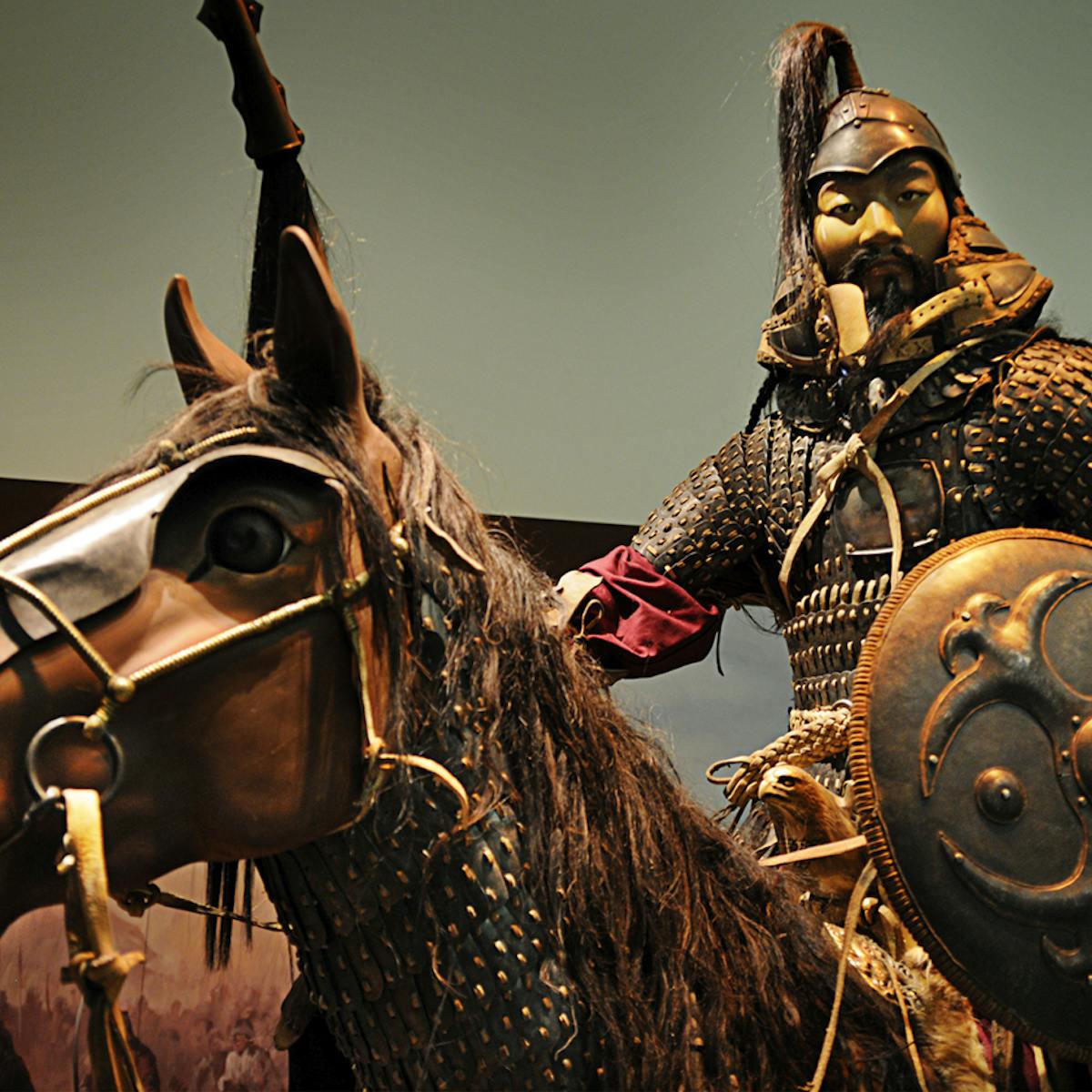The Prolific Love Life of Genghis Khan, 0.5% of Men Worldwide Are Descendants of Him
Genghis Khan, the fearsome Mongolian warrior of the 13th century, may have done more than rule the largest empire in the world; according to a recently published genetic study, he may have helped populate it too.
An international group of geneticists studying Y-chromosome data have found that nearly 8 percent of the men living in the region of the former Mongol empire carry y-chromosomes that are nearly identical. That translates to 0.5 percent of the male population in the world.

The spread of the chromosome could be the result of natural selection, in which an extremely fit individual manages to pass on some sort of biological advantage. The authors think this scenario is unlikely. They suggest that the unique set of circumstances surrounding the establishment of the Mongol empire led to the spread.
“This is a clear example that culture plays a very big role in patterns of genetic variation and diversity in human populations,” said geneticist Spencer Wells, one of the 23 co-authors of the paper. “It’s the first documented case when human culture has caused a single genetic lineage to increase to such an enormous extent in just a few hundred years.”
Legacy of Genghis Khan
To have such a startling impact on a population required a special set of circumstances, all of which are met by Genghis Khan and his male relatives, the authors note in the study published in the American Journal of Human Genetics.

Khan’s empire at the time of his death extended across Asia, from the Pacific Ocean to the Caspian Sea. His military conquests were frequently characterized by the wholesale slaughter of the vanquished. His descendants extended the empire and maintained power in the region for several hundred years, in civilizations in which harems and concubines were the norm. And the males were markedly prolific.
Khan’s eldest son, Tushi, is reported to have had 40 sons. Documents written during or just after Khan’s reign say that after a conquest, looting, pillaging, and rape were the spoils of war for all soldiers, but that Khan got first pick of the beautiful women. His grandson, Kubilai Khan, who established the Yuan Dynasty in China, had 22 legitimate sons, and was reported to have added 30 virgins to his harem each year.
“The historically documented events accompanying the establishment of the Mongol empire would have contributed directly to the spread of this lineage,” the authors conclude.

Tracking the Y-Chromosome
The study looked at blood samples collected over a period of ten years from more than 40 populations living in and around the former Mongol empire.
Geneticists use the Y-chromosome in population studies such as this because it doesn’t recombine as other parts of the genome do. When it comes to eye color, or height, or resistance or susceptibility to particular diseases, each parent contributes half of a child’s DNA, which join together to form a new genetic combination.
The Y-chromosome is passed on as a chunk of DNA from father to son, basically unchanged through generations except for random mutations.

These random mutations, which happen naturally and are usually harmless, are called markers. Once the markers have been identified, geneticists can go back in time and trace them to the point at which they first occurred, defining a unique lineage of descent.
In this particular instance, the lineage originated 1,000 years ago. The authors aren’t saying that the genetic mutations defining the lineage originated with Khan, who was born around 1162; they are more likely to have been passed on to him by a great great grandfather.
The lineage was found in only one population outside of the former Mongolian empire, in Pakistan.
“The Hazaras [of Pakistan] gave us our first clue to the connection with Genghis Khan,” said Wells. “They have a long oral tradition that says they’re his direct descendants.”

Of course, the connection to Genghis Khan will never be a certainty unless his grave is found and his DNA could be extracted. Until then, geneticists will continue to seek out isolated populations in the hope of unraveling the mysteries of geographic origin and relatedness told by our genes.
Related Post
A shocking documentary proves that mermaids do exist
SHOCKING Revelation: Thuya, Mother of Queen Tiye, Was the Grandmother of Akhenaten and Tutankhamun—What Ancient Egyptian Secrets Did She Leave Behind?
Breaking News: Astonishing Discoveries at Karahan Tepe Confirm an Extraterrestrial Civilization is Hiding on Earth, and NO ONE Knows!
Breaking News: Researchers FINALLY Discover U.S. Navy Flight 19 After 75 Years Lost in the Bermuda Triangle!
NASA’s Secret Investigation: Uncovering the Astonishing Mystery of the UFO Crash on the Mountain!
Explosive UFO Docs LEAKED: Startling Proof That Aliens Ruled Ancient Egypt!